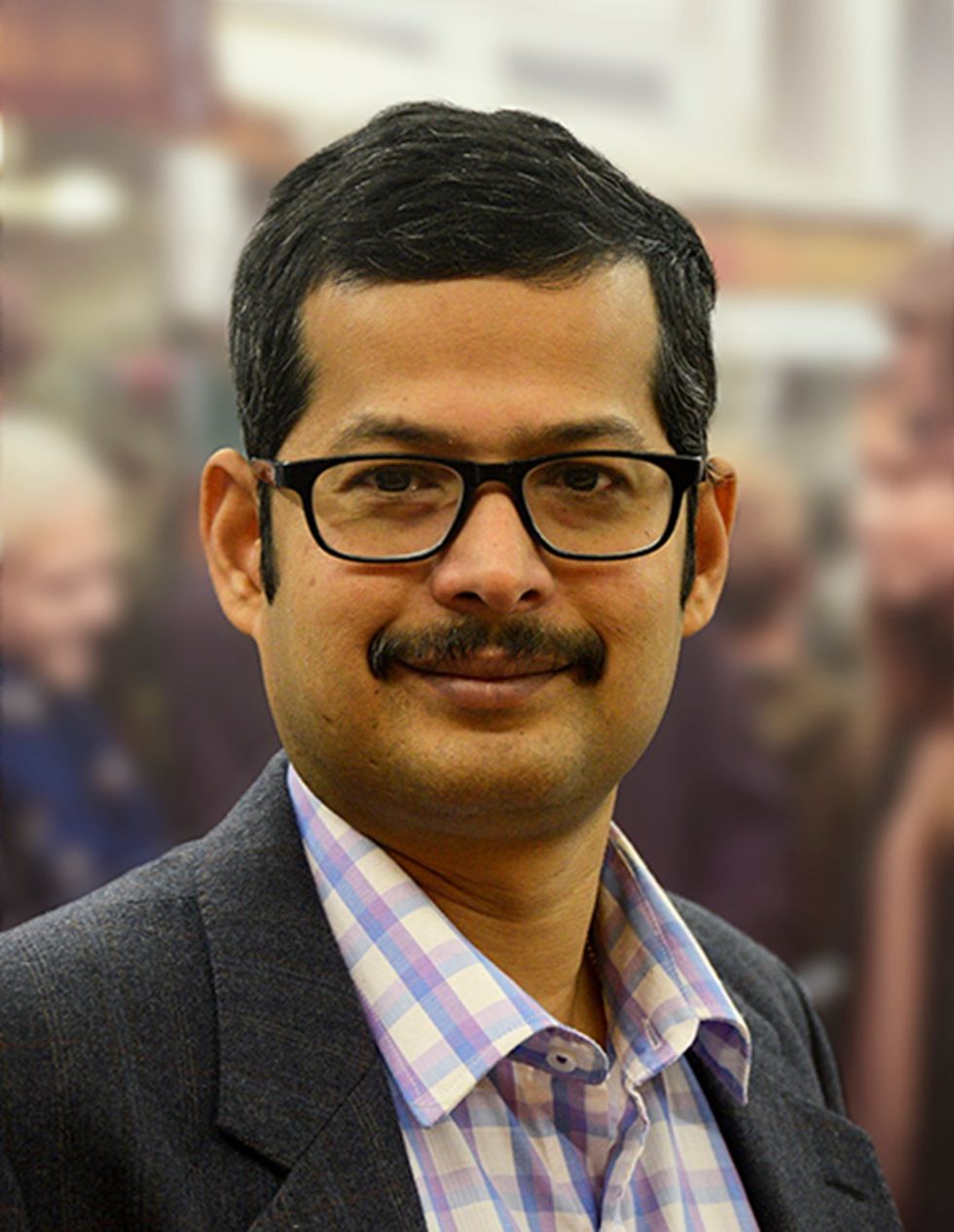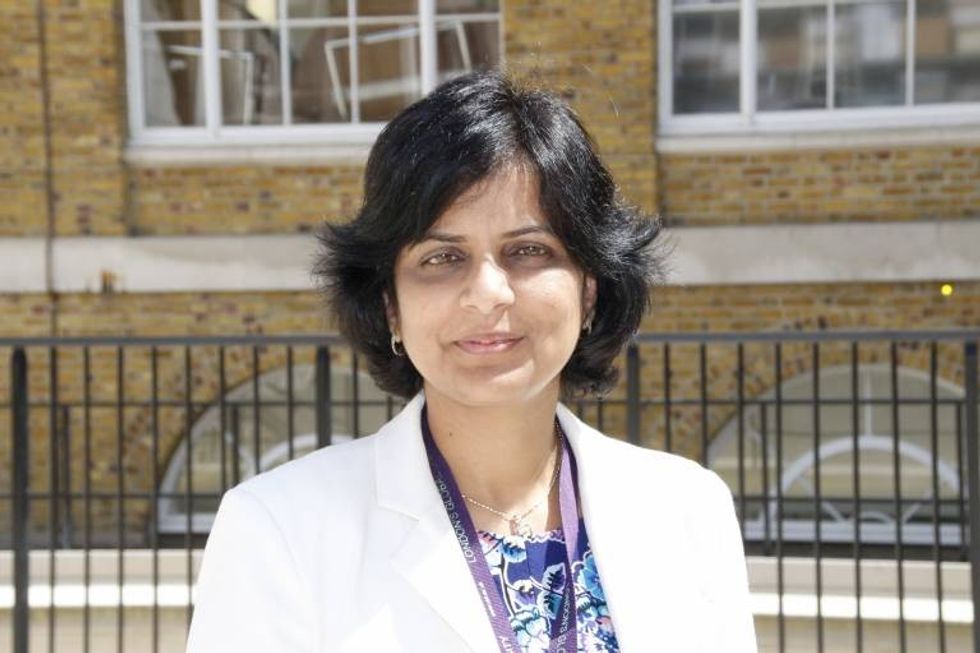CLIMATE finance to fund technology innovations will be key to India delivering its goal of ‘net zero’ emissions by 2070, academics, policy experts, business leaders and politicians have said.
They were speaking as they welcomed Indian prime minister Narendra Modi’s announcement at the COP26 summit in Glasgow this week.
India is currently the world’s third-biggest emitter of greenhouse gases after China and the United States. However, the country has the lowest per capita emissions of the world’s major economies – emitting five per cent of the total, despite accounting for 17 per cent of the world’s population.
“By 2070, India will achieve the target of net zero emissions,” Modi told more than 120 leaders at the critical talks in Scotland on Monday (1).
British prime minister Boris Johnson welcomed the commitment, saying the UK will work with India to make even more progress on the issue. But Modi made it clear that emissions-cutting pledges from India and other developing nations would require finance from rich, historic emitters.
Amarjit Singh, chief executive officer of the UK-based India Business Group, told Eastern Eye that although there would be pressure on India to phase out coal and transition to cleaner energy sources, there could be opportunities for British businesses.
“The UK will be looking more to support India on tackling climate change and through tools like developing new green technologies, clean energy to help India in a more green economy,” Singh said.
“Say, for example, India is looking to permanently move to electrical vehicles to reduce air pollution issues. There is a lot of advisory work taking place between the British government on transport and environment matters to support India with our expertise, but also with technology transfer, which it will need to move forward.”
Baroness Patricia Scotland, secretarygeneral of the Commonwealth, of which India is the largest country, told Eastern Eye, “Ten years ago, developing nations were promised $100 billion in climate finance each year. To date we are still short of that target.”
She added, “Developed countries need to deliver on this promise, not only to achieve results on the ground, but also to secure trust.
“PM Modi, alongside other world leaders, has called for climate justice. It cannot be just or fair that countries which contributed little to the problem of climate change, are not only likely to suffer the most from it, but are also asked to face the burden of rectifying it.
“I welcome the fact that prime minister Modi came to COP26. India remains at the table to negotiate and has never walked away from our global vision, when others have been less forthcoming and collaborative.”
In his remarks, Modi criticised the failure of rich nations to cough up the $100bn (£73.44bn) a year by 2020 to help vulnerable nations decarbonise their economies and cope with climate impacts.
“We all know this truth that the promises made to date regarding climate finance have proved to be hollow,” he said.
“The world ambitions on climate finance cannot remain the same as they were at the time of Paris agreement.”
“It is India’s request that developed countries make available $1 trillion of climate finance as soon as possible,” he added, without specifying how such funds should be distributed.
India is the last of the world’s major carbon polluters to announce a net-zero target, with China saying it would reach that goal in 2060, and the US and the EU aiming for 2050.
Modi told the Glasgow summit that India would increase its 2030 target for installed capacity of “non-fossil energy” – mostly solar – from 450 to 500 gigawatts.
In addition, 50 per cent of the country’s energy requirements will come from renewable sources by the same date.
The prime minister also announced that the carbon intensity of India’s economy – the amount of emissions produced per unit of GDP – would be reduced by 45 per cent by 2030.
Following the announcement, Johnson said on Twitter, “India has today announced ambitious plans for half its energy to come from renewables by 2030. This will cut carbon emissions by a billion tonnes, contributing to a worldwide decade of delivery on climate change.
“PM Narendra Modi has, for the first time, made a commitment for India to become net zero, meaning 90 per cent of the world’s economy is now committed to this goal. The UK will work with India to make even more progress, including through the Clean Green Initiative we discussed today at COP26.”
One sector where India will aim to lighten its carbon footprint is in rail transport.
“More passengers than the entire population of the world travel by Indian Railways every year,” Modi said.
“This huge railway system has set itself a target of making itself ‘net-zero’ by 2030. This initiative alone will reduce emissions by 60 million tonnes per annum.”
Britain announced on Monday (1) it will fund green investments of more than £3bn over five years and new guarantees to support clean infrastructure projects in developing economies, which includes India (See story on page 15).
Singh noted that climate change was part of the UK-India 2030 roadmap, which sets out the next decades framework of strengthening bilateral relations.
“Climate change is one of the five pillars in the 2030 roadmap,” he told Eastern
Eye. “Given that India is one-sixth of humanity – it needs support in a whole
range of ways, not just technological, but also financial.”
According to him, “Ultimately businesses – particularly British businesses – following Brexit, are looking at geographic diversification, particularly in the areas of manufacturing, and India stands as an attractive destination, because of its huge consumer base.”
He said both countries need to “adopt a green mindset from the outset”.
“All of these initiatives, where they are collaborating on the use of new technologies, green technologies, renewable technologies, they’ve got to be thinking, how are they efficient from a commercial viewpoint, both in terms of manufacturing, selling and buying, but also how are they contributing towards achieving the carbon emission targets for both countries and more widely.”

Professor Jadu Dash, from the University of Southampton, is an expert in remote sensing. His work involves analysing satellite data to look into environmental problems. He told Eastern Eye, “The bigger challenge is not the money – it’s getting the technology to help reducing emission, that is a key challenge. That’s where I feel the focus will be.”
He also noted how governments around the world could help effect change by developing policies, rather than pursuing any drastic measures.
“If you listened to prime minister Modi’s speech (at COP 26), he focused more on trust adaptation rather than mitigation, which is really where the focus should be, because that’s probably much, much easier to implement.
“Something is already happening, and that may take longer, but we can adapt quite well. I think governments should focus on priorities in terms of adaptation.”

Professor Lyla Mehta, of the Institute of Development Studies, told Eastern Eye,
“Richer countries could do more in terms of climate finance, addressing issues concerning loss and damage and support in adaptation, especially for those who are at the frontline of climate change.”
She added, “Modi’s speech is a good start and it’s great India has made serious commitments for both 2030 and 2070.
“However, the devil will be in the detail. The centre and each state will need to come up with their plans and targets regarding water, agriculture, energy. It is also important that there is no greenwashing, especially of some corporate players known for their polluting industries, high emissions and dispossession of lands and livelihoods who will, no doubt, want to be known as ‘green saviours’.”

Mehta’s views were shared by another expert, Priti Parikh, who is associate professor, head of engineering for the International Development Centre, Bartlett School of Sustainable Construction, at University College London.
Parikh told Eastern Eye, “Developing countries need even more resources to tackle climate change. They will need investments in clean technologies to move away from reliance on polluting fuels such as coal for economic well-being.
“Most important, developing countries will need to rapidly improve infrastructure services such as energy, water and sanitation for vulnerable communities in a way which is climate resilient, affordable and inclusive.”
She added, “As prime minister Narendra Modi highlighted in his speech, there needs to be an emphasis on adaptation which needs investment in clean energy and nature-sensitive solutions for infrastructure services.
“There will be difficult dialogues and discussions over the next few days to accelerate the pathway to net zero in a way which enables developing countries to meet their economic needs and invest in clean technologies.”
According to Parikh, “Switching to renewables is possible and India is making strides. But with over billion people dependent on coal for their livelihood, huge investments will be required to transition to non-coal fuels.
“Developing countries want developed nations to step up investment. South Asian countries such as Bangladesh are already facing the destruction unleashed by climate change through floods, storms and heat waves which impedes economic progress.
“There are questions being asked on who pollutes the most and who bears the costs of the devastation of climate change.
“Developed and developing countries will need to work together on a more ambitious climate finance plan to support rapid decarbonisation plans in developing countries.”
Scotland noted the role of the Commonwealth Secretariat in helping to tackle climate change. She said, “We are doing all we can to limit global temperature rise to 1.5ºC, through our resolve, our programming, and our diplomacy. The difference between 1.5 and even 2ºC can mean life or death for low-lying atolls and coastal communities. We want countries to come to the table with the highest possible ambition, and we need to act now.
“Some priority issues we are focusing on include unlocking climate finance, supporting small and other vulnerable states by building resilience and overcoming vulnerability, fast-tracking the shift to clean energy, promoting sustainable land use management through nature-based solutions and intensifying ocean climate action.
“We must all work harder and smarter to achieve the targets of the Paris Agreement. This challenge cannot be won without India taking leadership, as the largest member of the Commonwealth.
“It is only through intensive multilateral action that we will tackle this crisis.”
On Tuesday (2), more than 100 countries joined an effort led by the United States and European Union to slash emissions of the greenhouse gas methane by 30 per cent by 2030 from 2020 levels, an initiative aimed at tackling one of the main causes of climate change.
The Global Methane Pledge, launched at the Glasgow COP26 summit after being announced in September, now covers countries with nearly half of global methane emissions and 70 per cent of global GDP, US president Joe Biden said.
Among the new signatories was Brazil – one of the world’s biggest emitters of the gas. The pledge now includes six of the world’s 10 biggest methane emitters – the US, Brazil, Indonesia, Nigeria, Pakistan and Mexico. However, China, Russia, India and Iran, also top-10 methane emitters, have not signed up.
While it is not part of the formal UN negotiations, the methane pledge could rank among the most significant outcomes from the COP26 conference, given its potential impact in holding off disastrous climate change.
The 30 per cent methane cut, which is not legally binding, would be jointly achieved by the signatories. Key sources of methane emissions include leaky oil and gas infrastructure, old coal mines, agriculture and landfill sites.
(With agencies)

















